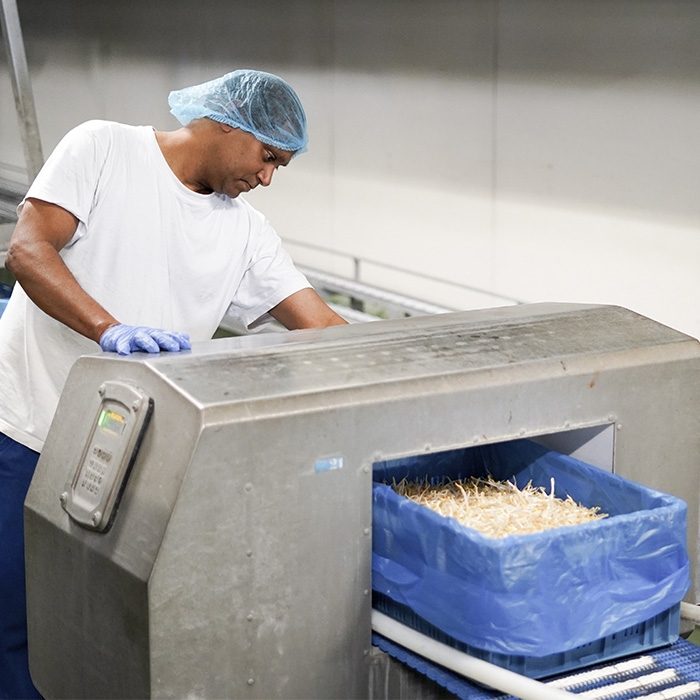The food safety of our bean sprouts
Going grocery shopping and wondering whether the vegetables that are being sold are safe for consumption? That should never be the case in Europe in 2020. For consumers vegetables should be safe without question.
Food safety indicates that food items are edible, without causing short- or long-term illness. When growing safe vegetables producers pay attention to possible pathogenic bacteria, such as salmonella and E.coli, harmful substances and foreign materials. After performing rigorous checks and controls the food items are ready for sale. Interested to learn more about how we ensure safe bean sprouts? Then keep reading our food safety blog.

The food safety plan of Evers Specials
In our food safety plan the health of the consumer comes first. We follow strict rules and regulations to ensure hygiene, all according to our HACCP-plan. Food safety at Evers Specials starts with the mung bean farmers in Asia. Only mung beans with sprouting quality can be imported into the EU for the production of bean sprouts. These mung beans were specifically grown for sprouting. Once in Nijmegen, we put the delivered batch of mung beans through stringent tests, before usage. Only after the tests come back positive, we use the mung beans in our growing cells.
Through a disinfected piping system the beans arrive into a cleaned and disinfected growing cell. The fresh water that is used during growing is disinfected as well to decontaminate the water buffer tanks and the piping system to the cells. All doors of the cells stay closed during the growing period. For the ventilation of the cells we use clean, filtered air from outside. In the controlled environment of the growing cells the mung beans germinate into bean sprouts in 7 days.
For monitoring purposes we frequently get the harvested bean sprouts analyzed for Salmonella and STEC (Shiga-toxin producing Escherichia coli bacteria). After harvesting, we cool a batch of 10
pallets of packaged bean sprouts back to below 7°C within approximately 20 minutes. This way we ensure a core temperature of below 7°C for all the bean sprouts in the batch. This rules out the growth of pathogenic bacteria. Each month we also get samples of the packaged bean sprouts analyzed for Salmonella, STEC and E.coli and every quarter of a year for Listeria monocytogenes, Staphylococcus aureus and Bacillus cereus. The harvested bean sprouts stay within a closed cold chain up until usage. Furthermore, we give our employees yearly trainings in hygiene, food safety and other quality aspects, so they possess the right knowledge. This way we ensure safe and tasty bean sprouts for our customers.
Certification
Food safety certificates show our customers, partners and suppliers what requirements our business and products meet.
We have the following food safety certificates:

Chain responsibility
At Evers Specials we take our responsibility. Elevating food safety to a higher level starts with the mung bean and ends when the bean sprouts are on the plate of the consumer. All links are of importance in this process. From producers, to the government, suppliers, partners and customers. At Evers Specials we focus on transparent communication, proactive actions and partnership within the supply chain. Furthermore, we give advice to the quality departments of our customers, partners and suppliers on quality and food safety. Together we are always one step ahead.
The Food Crisis Management Event
Effective management of European food crises is key to protecting consumers and further developing the international fruit and vegetable sector. This last year we have been working hard on our rebranding. To show who we are and what we stand for, we decided to take action within a theme that does not only concern us, but is meaningful to the entire sector. On the 2nd of September Freshfel Europe and ESSA organize the digital Food Crisis Management Event. We as Evers Specials are initiator and sponsor of this event.
With this event we want to provide a platform for agri-associations, food business operators, European Commission officials, representatives of EU national authorities and other stakeholders, to enable more effective European food crisis management through interaction and dialogue.
